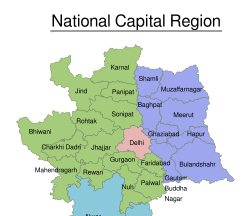Bangladesh has terminated a $21 million contract awarded to Garden Reach Shipbuilders and Engineers Ltd , a defence ministry-owned shipbuilding company based in Kolkata, for the construction of an Advanced Ocean-Going Tug. The cancellation follows India’s decision to withdraw the transshipment facility previously extended to Bangladesh, a move that has strained bilateral trade ties.
The tugboat project, designed to enhance Bangladesh’s maritime capabilities, was seen as a strategic step to modernise its naval auxiliary fleet. However, the cancellation underscores a deepening friction between the two neighbours over trade and logistics arrangements, particularly concerning port access and cargo movement.
India’s withdrawal of the transshipment facility meant that Bangladesh lost the ability to send its export cargo through Indian ports, a facility that had been crucial for accessing global markets efficiently. The move was viewed by Dhaka as a significant disruption to its trade routes and a setback to regional cooperation under existing agreements. This development appeared to have influenced Bangladesh’s decision to halt contracts with Indian defence suppliers.
GRSE, recognised for its construction of naval and coast guard vessels, had been engaged in multiple projects aimed at strengthening maritime security and commercial capabilities across South Asia. The Advanced Ocean-Going Tug was among a range of initiatives meant to expand Bangladesh’s shipbuilding portfolio, with the vessel expected to assist in rescue, towing, and offshore operations in the Bay of Bengal.
The decision to sever the contract highlights broader geopolitical and economic tensions between the two countries. Bangladesh’s Ministry of Defence has not issued an official detailed statement explaining the cancellation, but sources familiar with the matter suggest that the suspension reflects dissatisfaction with India’s logistic policy shift, as well as an attempt to explore alternative partnerships.
Trade experts note that the tug contract termination signals a shift in Dhaka’s procurement strategy, possibly moving towards diversifying its supply chain beyond traditional Indian partners. Bangladesh has increasingly sought to strengthen defence and infrastructure ties with other regional players, including China, South Korea, and Turkey, in efforts to modernise its fleet and expand maritime infrastructure.
The tug contract cancellation also has implications for GRSE and its role in regional defence exports. While the company has built a reputation as a reliable defence shipbuilder within South Asia, losing a key order from Bangladesh might affect its international profile and future export ambitions. GRSE has been involved in projects with the Indian Navy and Coast Guard, as well as contracts with other neighbouring countries, but geopolitical complexities may challenge such cross-border collaborations.
Bangladesh’s pivot away from Indian defence contracts comes amid a larger recalibration of the country’s foreign relations and economic priorities. The withdrawal of the transshipment facility by India was part of a broader protectionist approach, reflecting growing concerns over transit and trade security along key regional corridors. Bangladesh has responded by accelerating its investments in its own ports, notably the development of the Payra and Matarbari deep-sea ports, aiming to reduce dependence on neighbouring infrastructure.
This tug cancellation follows a series of diplomatic exchanges between Dhaka and New Delhi, where both sides have voiced their positions but struggled to find common ground on trade facilitation. Economic analysts suggest that the move could push Bangladesh to seek greater engagement with alternative trading partners and reduce reliance on India for maritime logistics.
The Advanced Ocean-Going Tug contract had been expected to contribute not only to Bangladesh’s naval capacity but also to regional maritime safety and disaster response capabilities. The Bay of Bengal, prone to cyclones and natural disasters, demands robust maritime assets for rescue and recovery missions. Bangladesh’s cancellation may delay such enhancements and force the government to reconsider its maritime procurement plans.
The development highlights the complex interplay between defence procurement, trade policy, and regional diplomacy in South Asia. It also reveals the fragility of long-standing cooperation agreements when broader geopolitical issues come to the fore. Both nations face challenges in balancing national interests with regional connectivity goals, impacting trade flows, defence collaboration, and economic integration.
Despite this setback, dialogue between Bangladesh and India continues through diplomatic channels, aiming to resolve trade and transit issues. However, the tug contract cancellation signals that the relationship is undergoing a period of recalibration, with Bangladesh signalling its readiness to diversify partnerships and assert greater control over its maritime and trade infrastructure.
GRSE, meanwhile, is expected to adapt to the changing landscape by seeking new markets and expanding its product offerings to remain competitive in the evolving South Asian defence industry. The company has been focusing on modernising its shipbuilding technology and expanding into commercial vessel construction to offset uncertainties in defence orders.




 Pakistan Faces Backlash Over Morphed Military Image
Pakistan Faces Backlash Over Morphed Military Image 